Wow, Wednesday was a very full day. My eyes could not stay open after we returned to the guesthouse to post to the blog. We are catching up on our posts…
Wednesday:
The two iPhone alarms started playing marimba music at 4:00am. Shortly after stumbling around the room and wondering where I was, we were packing onto the large bus rented for the Baylor choir. With our Ghanaian friends from the Christian Leadership Center we were out on the road by 5:30. Even at that hour, traffic was crazy. Merging is done by jamming your car into any small gap, forcing other cars to either veer into opposing traffic or stopping to let you in. Unlike most other parts of the world with intense traffic, Ghanaians don’t see to get very worked up. We have not seen any yelling or furious hand waving so prevalent in other locations.
Our first stop was a series of four schools. We drove west toward Cape Coast, leaving the intensely crowded city of Accra behind. Soon, we were passing banana trees, small villages, and roadside stores. Ghana is a beautiful country, but the intense humid heat makes me melt. I have to carry a bandana to continuously wipe the sweat covering my face. We go through drinking water faster than we can find stores to buy it. We have been keeping a careful eye on Paul, who sometimes forgets to keep drinking. With his shaggy mop top, he is especially hot. After 2.5 hrs we reach our destination.
Ghana has three or four main tribal languages. Twi (pronounced with more like “chwee”) is the largest. However, here in the west, Fanti is the primary tribal language, although most people can speak Twi, Fanti, and English. English is an official language, and while it is not their first language taught at home, they are often taught in English as school. Speaking slowly, we are generally understood.
We arrived at the schools late – at least an hour late. This is the African way. There is no fighting it, no matter how carefully we try and plan, things just move at a pace that we cannot accurately control or predict. Even the time to eat is variable — sometimes the kitchen we have arranged has all of the food ready and other times folks are cooking it as we arrive, and two or more hours could be spent eating in shifts. Everything is flexible. The Africans seem to have no trouble with this, but I must continue to remind myself that the everything will just work out, we will be exhausted, and that is the way it should be.
At the set of schools, we broke up into four groups and spent time singing and teaching them songs and telling Bible stories. The classes were so happy to have visitors. Our class was junior high. Naturally the Baylor choir was amazing. They started with singing a 4 part arrangement that had the kids eyes wide. The Ghanaians are fantastic singers and love to really groove. With a djembe and some body swaying, they have their own fantastic sound, which allows them to appreciate the completely opposite rhythms and harmonies of the choir. We tell some Bible stories, and then teach them a song before our time is up.
<< Sadly, one of my memory cards in the camera died and I won’t be able to attempt recovery of the photos from the school or part of the visit to the beach until we return and I have more software and hardware tools at my disposal >>
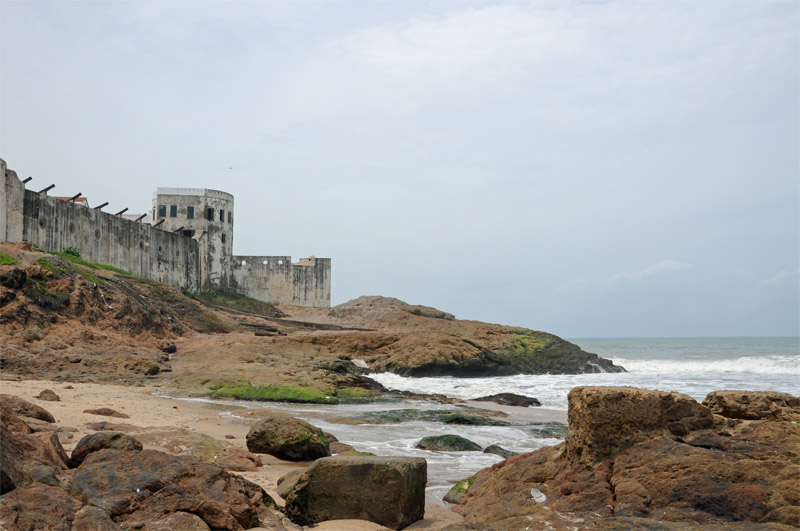
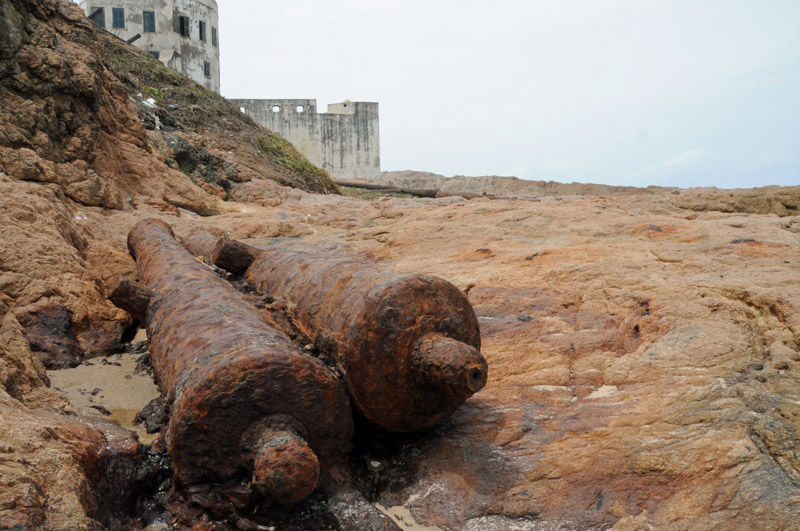
We then headed to the beach to walk around. We arrived at one of the slave castles that the last stop in Africa before slaves were shipped to other destinations. During the slave trade, local African tribes captured slaves from other parts of Africa and sold them to companies that then prepared ships for points north and west. It really was quite chilling to see the building still standing, with cannons facing the sea. Across the street was an old colonial church. It hurt to imagine how people justified slavery only 150 years ago. I stared at the castle, trying not to imagine what it was like, but it was impossible. Fortunately, there were other activities at the beach.
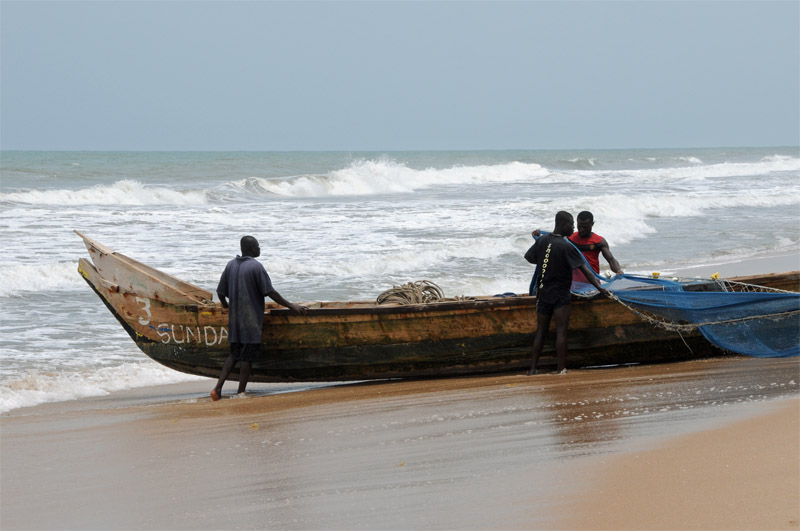
In this coastal region, the ocean sustains life. Large, beat up and leaky canoes were lined up under the palm trees. A team of 9 men prepared to venture into the sea with a long long net that would be floated across the waters and then hauled in from shore.
The captain was in the back, with a single rudder to guide the boat. After making it past the shallows, they paused in a rough patch, waiting for the perfect moment to make it past the set of waves. While they waited, waved continued to pound the boat, occasionally turning it 45 degrees. The strong young men jumped out and pushed the boat back into the walls of water before the next wave could turn and flip them. They struggled for wave after wave, waiting for the right time. On shore, the women and older men sat on their buckets and tubs, waiting for the men to make it out into the sea and lay their nets. Their eyes were fixed on the men struggling against the sea.
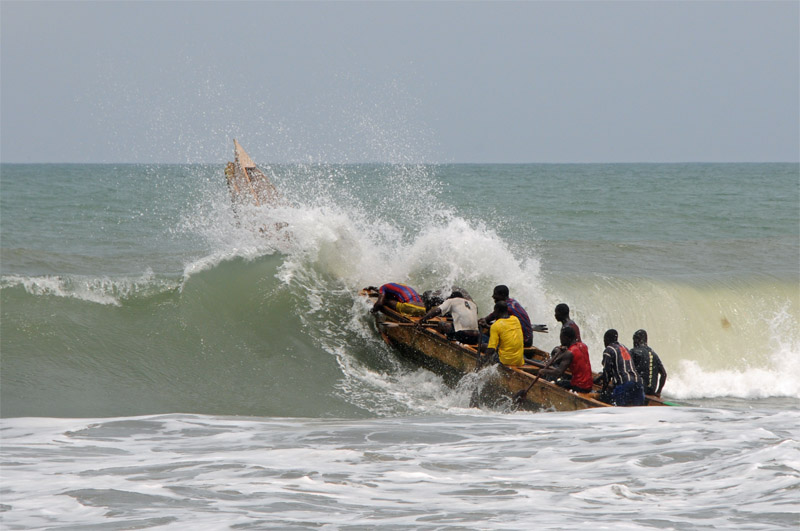
Suddenly, we saw the men stab at the water with their paddles in unison. It was time to charge the sea. A wave broke over their boat. The men braced, leaning down, so as not to be swept off. The canoe froze, halted by water. A bigger wave menaced. The men quickly sat up and slammed the water with paddles. With a boat that massive, getting flipped could mean death or serious injury. I wondered if I was the only one concerned. As the wave approach, almost in slow motion, I heard women shouting from behind me. The wives were standing, pumping their arms and yelling. I could only imagine that they were yelling “PULL”, “GO GO GO GO “. The wave smashed into their heap of patched and soggy wood. The bow raised up so high I looked for men to topple out the back. It hung in place for a moment and then slammed down. The team immediately resumed their sprint and the wives sat down.
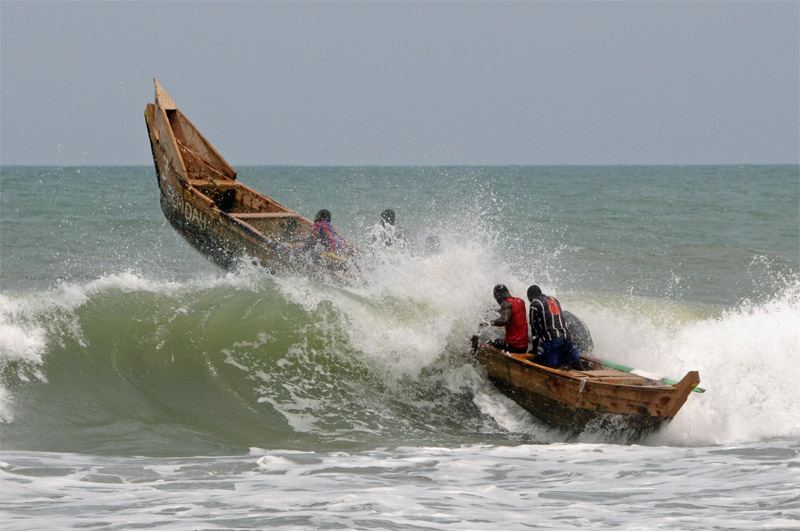
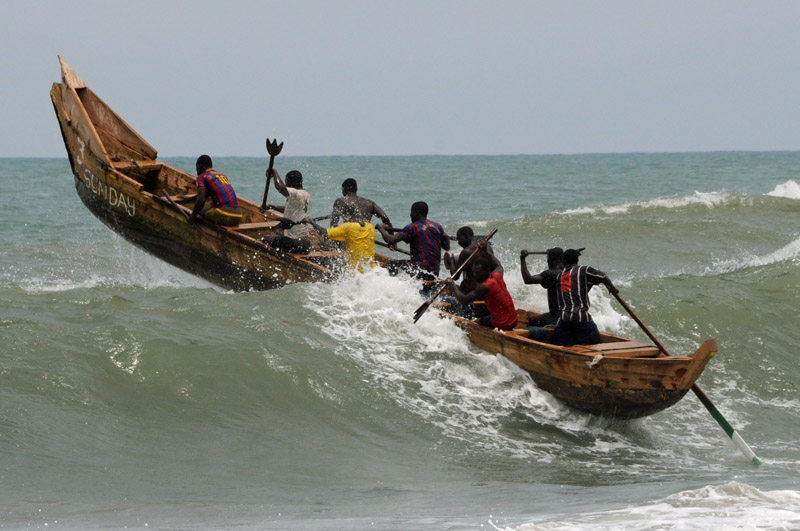
After the net was set, the team returned to shore and hauled it in. The fish were divided into buckets and handfuls given to several men who had helped pull in the net, but did not go out into the surf. Their courage was amazing. As a team, they provided for their families. It was a hard, dangerous, and difficult life as fisherman on the African coast.
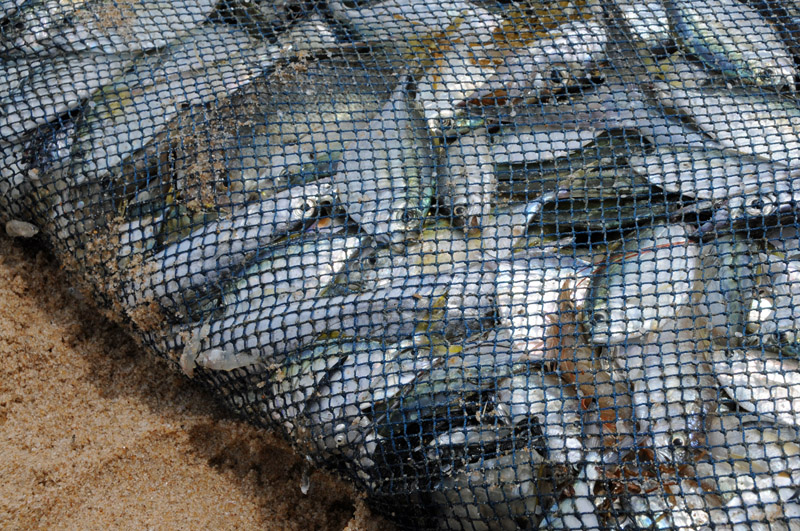



On the way home we stopped at Kakum and walked the canopy. It was a nice way to top off our long day. Tomorrow, the Baylor choir will be in the studio, and our smaller team will be on the road to a primary school.
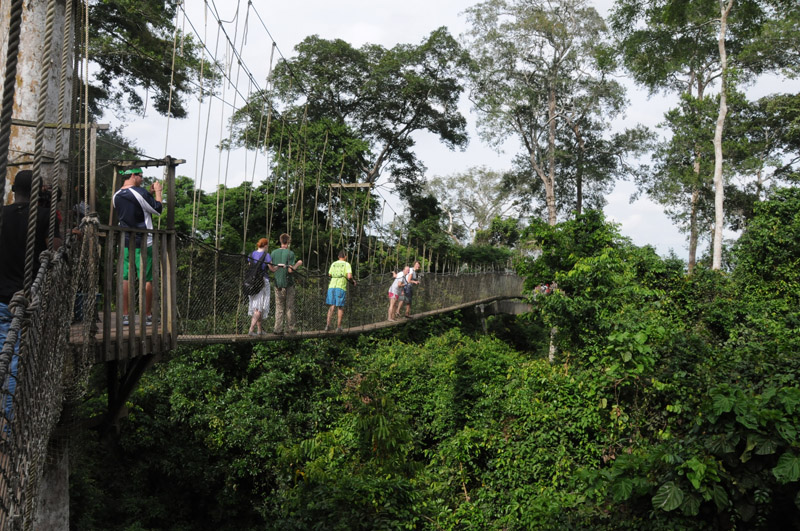
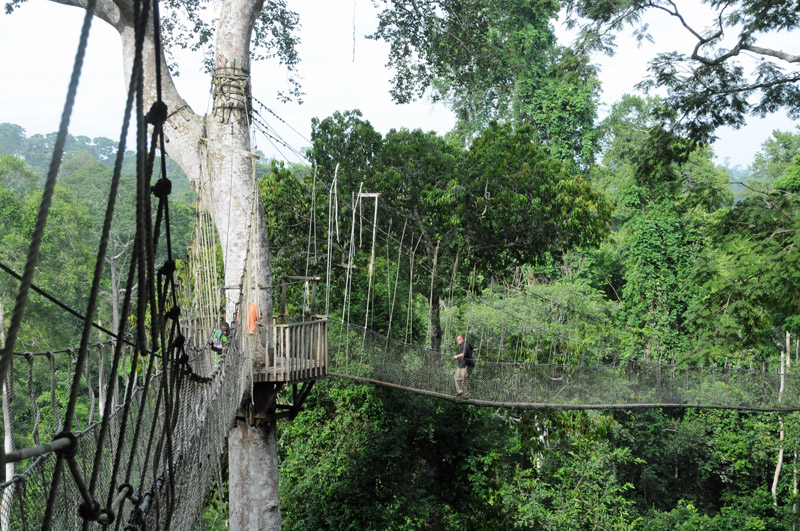

How can we be so non-chalant about going to grocery stores and getting our food with no effort when some throughout the world have to take their lives into their hands each time they collect fish for their survival!!!!!
When you get home, you might want to read “Someone Knows My Name.” Your images of the slave castle reminded me so much of the unique survival of one young slave woman and the whole slave history which was documented in such a fantastic way. It must have had an unbelievable impact on your emotions. It represents history that we truly would wish to blot from our memories….but it is part of “freedom” story that we must remember and value for its lessons. Thanks so much for your wonderful pictures. What an education Paul and Emily are getting.
Wow those waves were killer! The courage that the people waiting must have, just as much as the men going out! I cant believe that those people work next to the remnants of where their ancestors were taken away everyday….wow that takes a lot. Or maybe as a White American I’m feeling more of white man’s burden. Anyway I love you all and cant wait to hear more next weekend! Your in my prayer <3